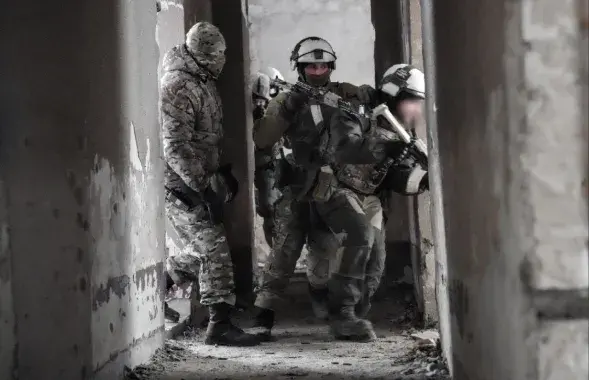People care about other people: stories of Partyzanka shop volunteers
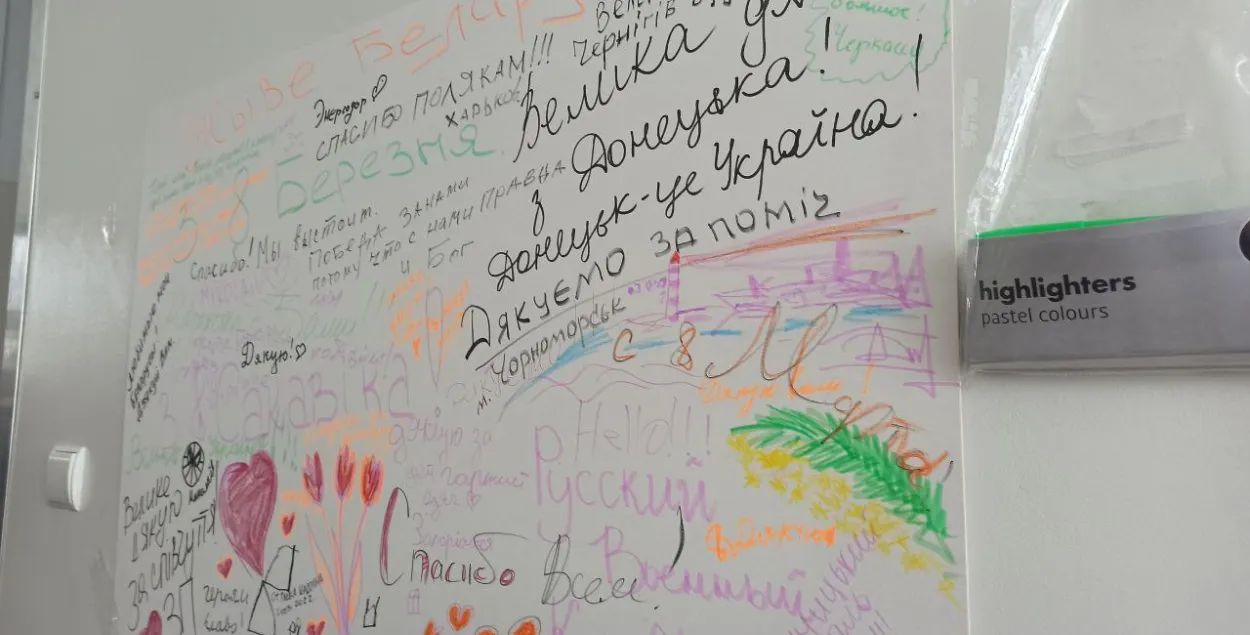
Kind words from store guests / Euroradio
We walk past the huge Gallery Mokotow mall and turn to a small school building.
There are dozens of stores in the mall, and there are signs with the names of most brands you can think of. There's only one store in the school building with a sign saying "Free Belarusian Help to Ukrainians".
This is the Partyzanka charity store. Everything is free here. Food, clothes, toys, children's car seats. And you can get a free hug here, too.
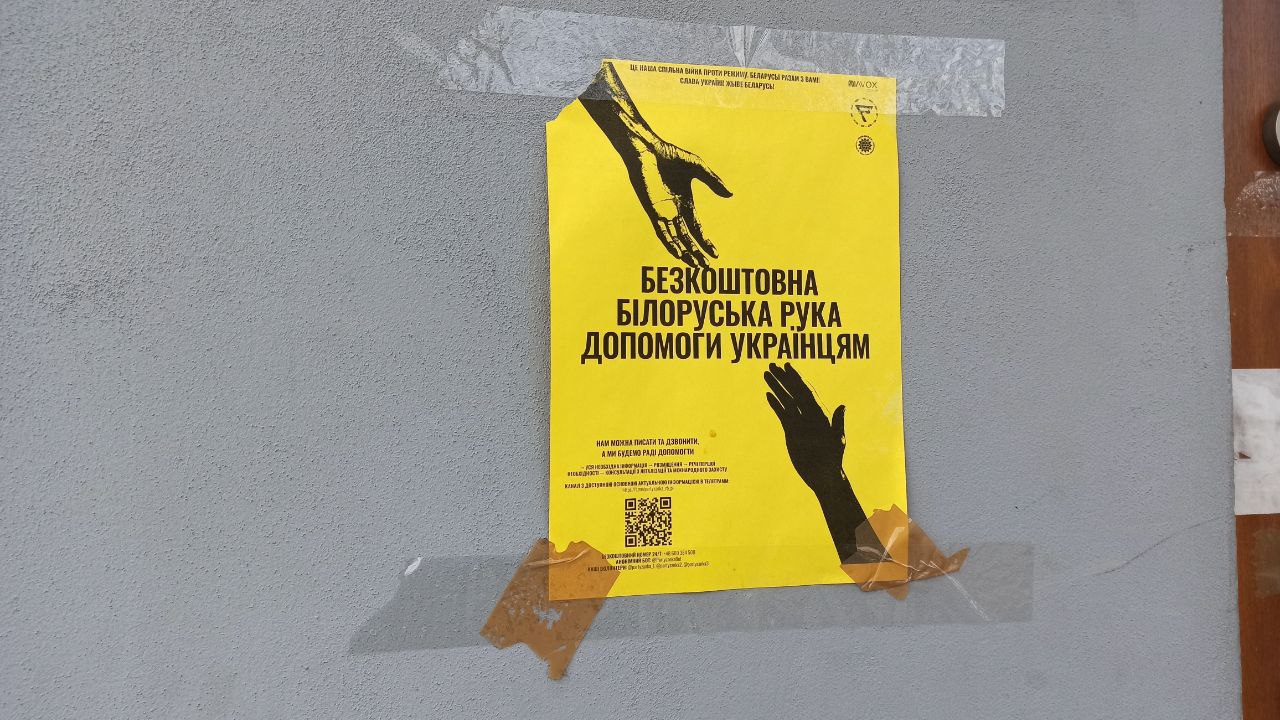
We came to Partyzanka to talk to Mikhas, a Belarusian who has been helping Ukrainians since the very first days of the war. Mikhas lives and studies in the Polish city of Olsztyn. But when the war started, he took a month's leave and went to the border.
For several weeks, he slept at the train station in Przemysl, a border town through which thousands of refugees drove every day. Now the problem on the border is no longer as acute, and Mikhas has come to Warsaw to help here.
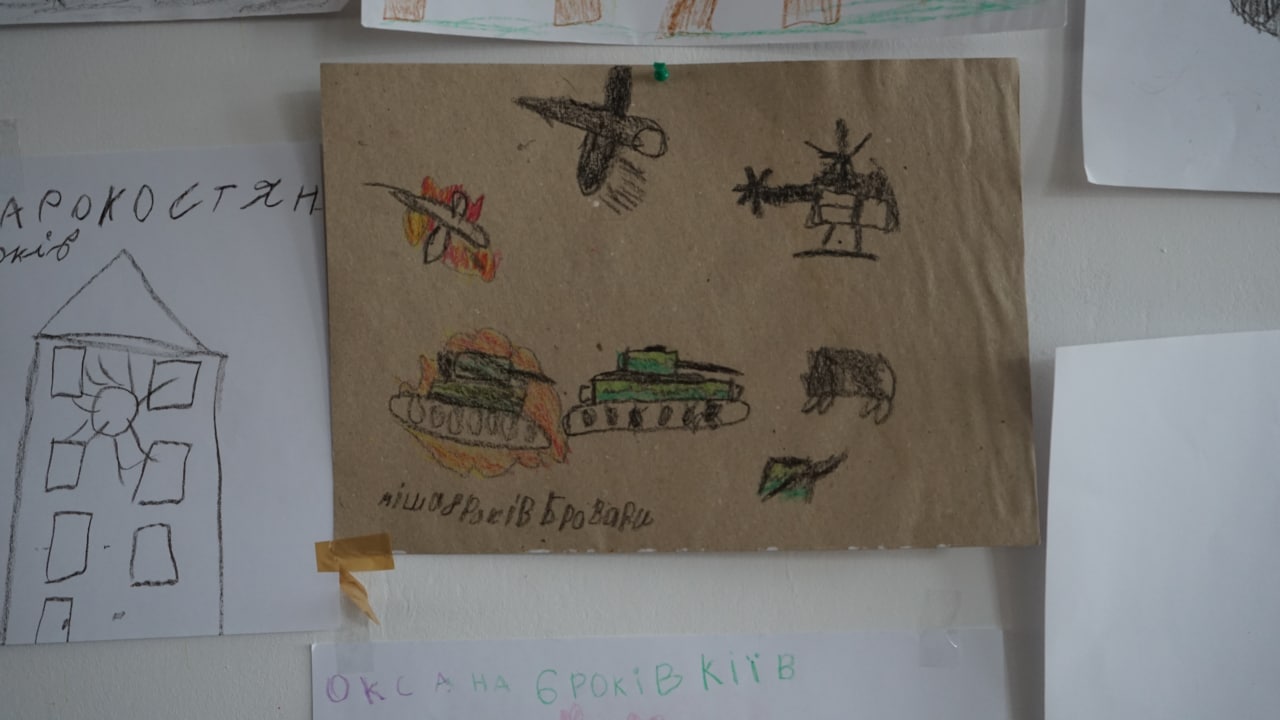
In the store, he introduced us to his colleagues, Polina from Kharkiv and Polina from Zaporizhzhya. Every day Mihas, Polina and Polina work together at Partyzanka. If this war has undermined your faith in people, just listen to what these guys are talking about.
How did the war start for you?
Polina from Kharkiv: I've been living in Poland for a long time, but my whole family is in Kharkiv. How did it start on February 24? Bad.
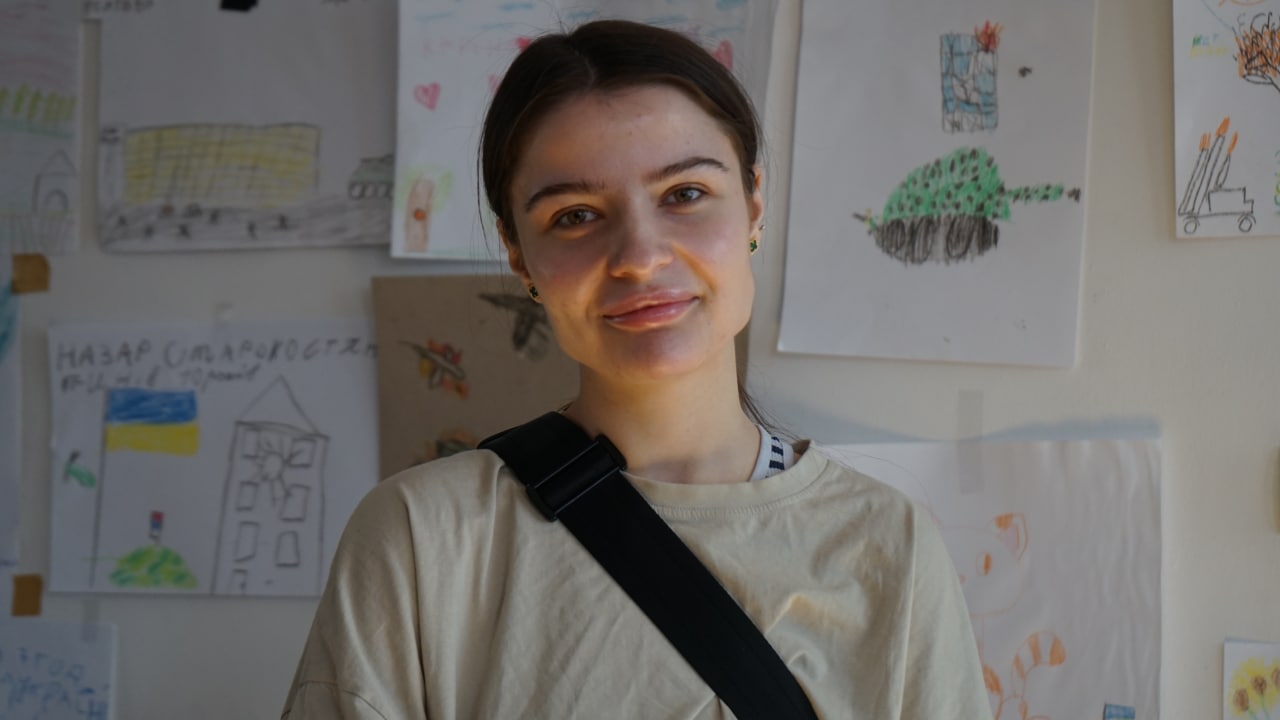
I woke up at four in the morning to a message from my mother: "Thank God you're in Poland." It was five o'clock in Ukraine. I didn't understand anything, so I called her. Explosions were heard in the receiver.
What was I doing that day? Working. Crying. Trying to stop the panic attacks.
Mikhas: I woke up, went into a chat room with friends and saw a panic attack there. There were guys from Ukraine in the chat room. People wrote to them: hurry up and leave! I didn't understand what was going on: where should they go? Why?
I left the chat room, and read the news. And for a whole day, I just dropped out of life. The next day, I went to Warsaw. They were already collecting humanitarian aid there.
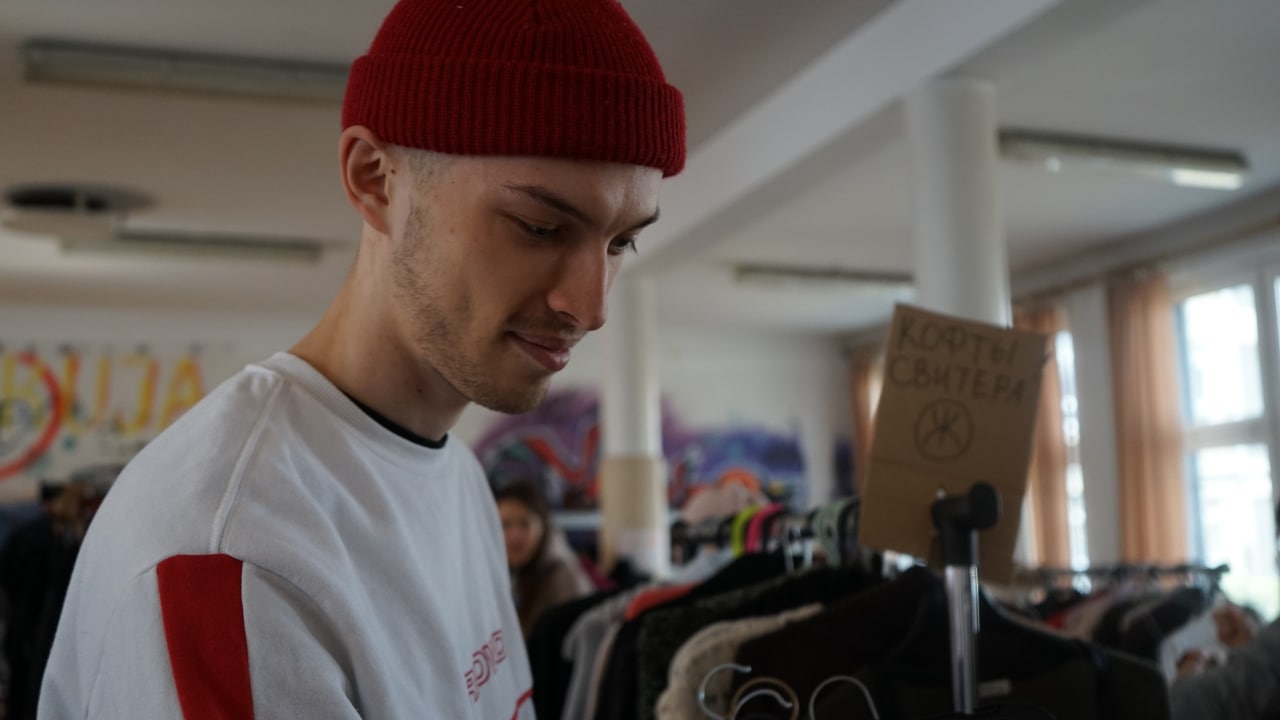
Coming back to my city, I didn't understand why I was going there. Everything that happens here with refugees, and everything that happens in Ukraine concerns me personally. I did not understand how I was going to study. I sat in apathy during classes, and immediately after the classes, I wrote an application to the dean, asking for a month off.
And immediately went to the border. I spent a week there, volunteering, helping.
Polina from Zaporizhzhya: when the war started, I was at home. At home in Zaporizhzhya. I was born in Vasylivka, which is now an occupied city. My parents and brother stayed there. And in Zaporizhzhya stayed my boyfriend. I left together with my cat.
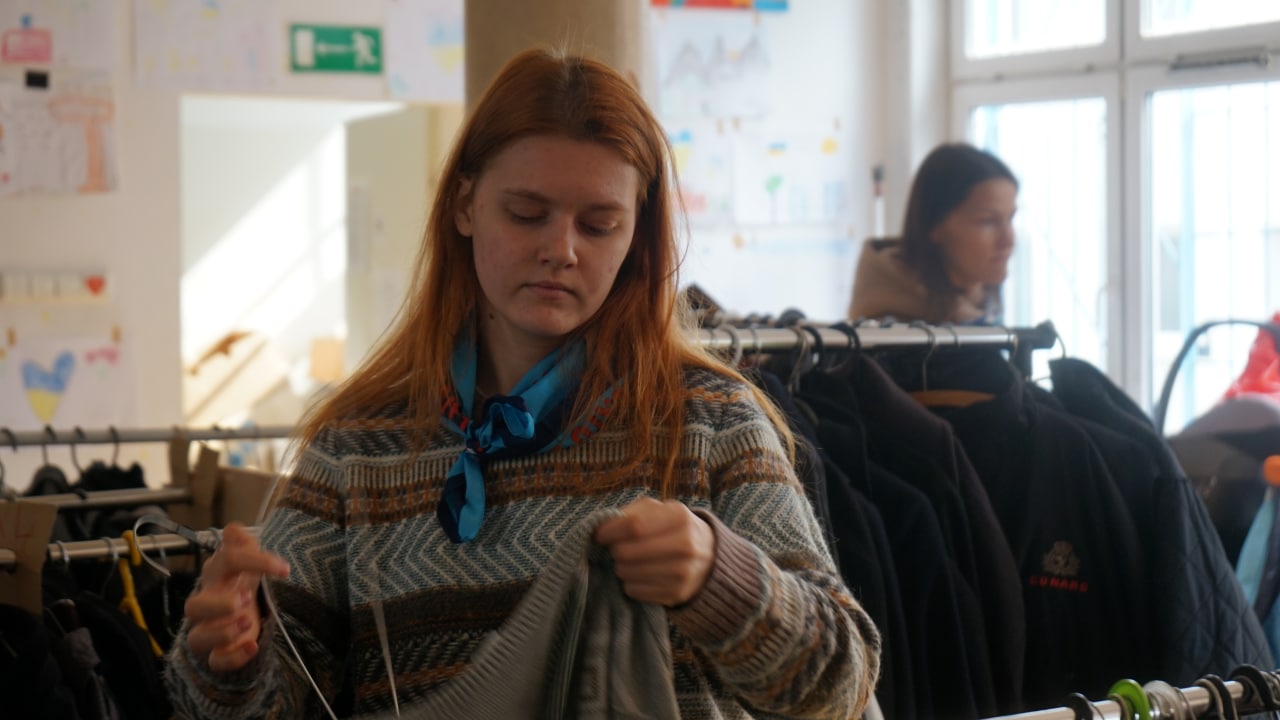
I didn't want to leave, I hoped that everything would work out. On the day of departure, I woke up, planned to have breakfast and go about my business. But at 8 a.m. my mother called and said her friend was in line for the evacuation train.
I talked to David - my boyfriend - and we decided that I needed to leave, too. My whole life fit in a backpack and a bag. And so I left.
How did you spend the first weeks of the war?
Mikhas: I spent the first week volunteering at the border. Then I went to Lviv - there I weaved camouflage netting. But pretty quickly realized that my help was not needed there as much as at the checkpoints. Anybody can weave a net, it is easy to replace me there.
But at the checkpoints, there was a lot of work, and far fewer volunteers, who could speak English, Polish, Belarusian and Russian. So I went back to Poland.
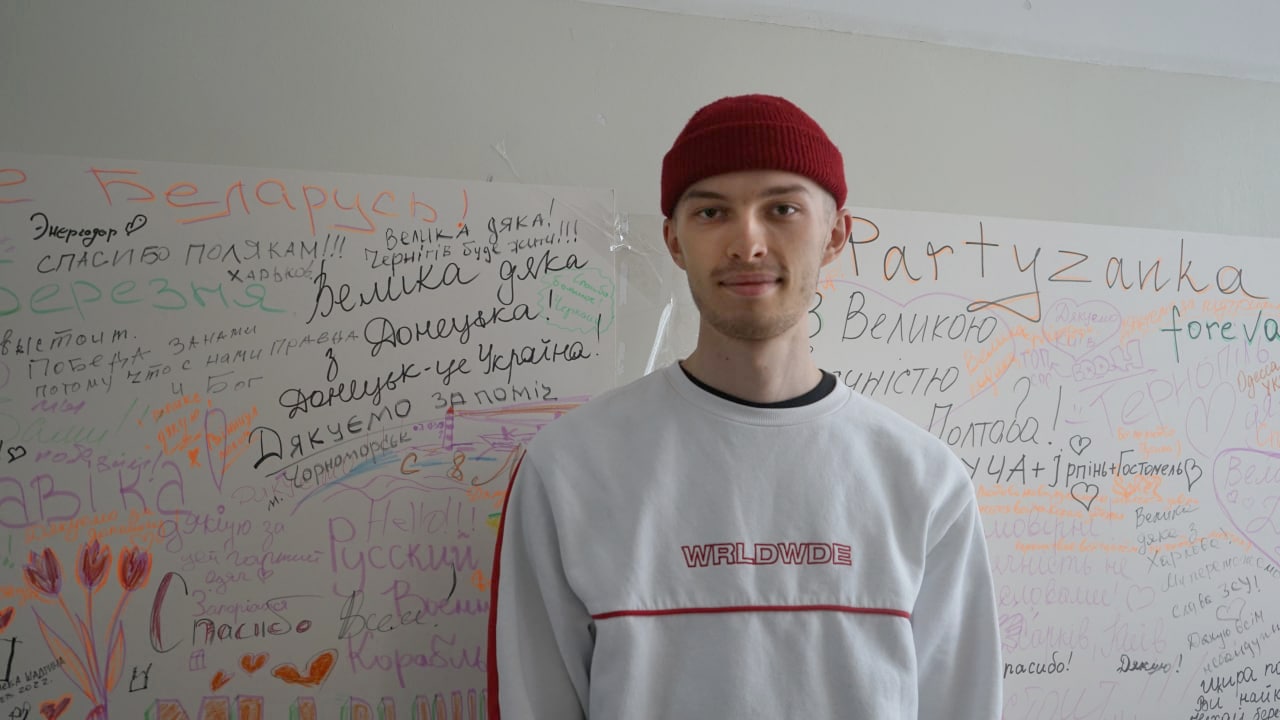
In the first weeks, the flow of refugees was so great that we slept in the stairwells of the train station in Przemysl. We woke up there and went back to work.
Thousands of people were arriving by trains at that time. It was very cold, people slept in sleeping bags. When there were fewer people at the checkpoints, I returned to Warsaw.
Now I volunteer at the Partyzanka shop. I take humanitarian aid from people, and sort things. If something is missing, I go to the warehouse and get what I need. Compared to what I saw at the border, there are few people here. When I arrive in the morning, there are 20 people in line - not thousands, like at the Przemysl railway station. Every day, 200-300 people come here.
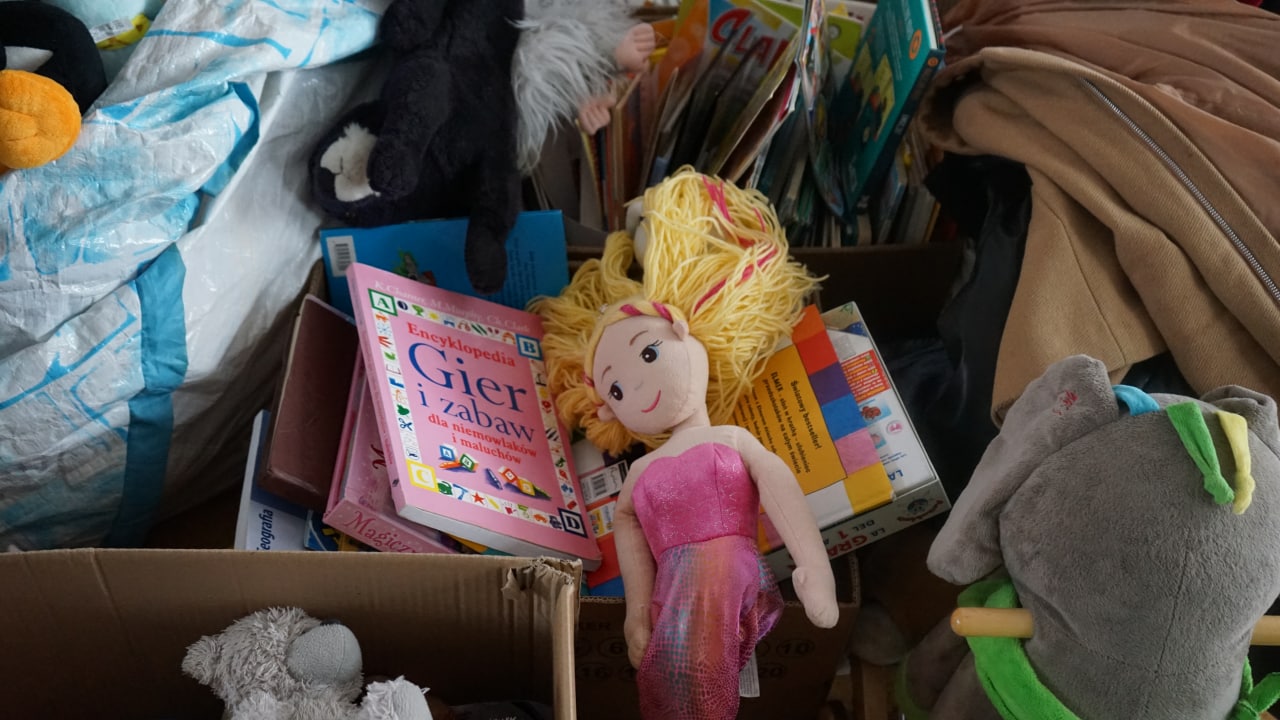
And the condition of the people who come here is different from what I encountered at the border. They are no longer panicking, they don't stand there with empty, weeping eyes, not knowing what to do next. They have a place to live, they know what they need: clothes, food, hygiene items. They know where they can get it all. For example, they can get it here.
Polina from Kharkiv: on the second day of the war, I took a week off and started volunteering. It seemed to all of us that in a week it would be over.
I spent the whole month volunteering at the border, collecting aid, and donating money. I tried not to be at home because every minute at home I felt like I was doing useless things that no one needed but for me. So every morning I took a quick shower and went to help. At train stations, at the border, here at the charity store.
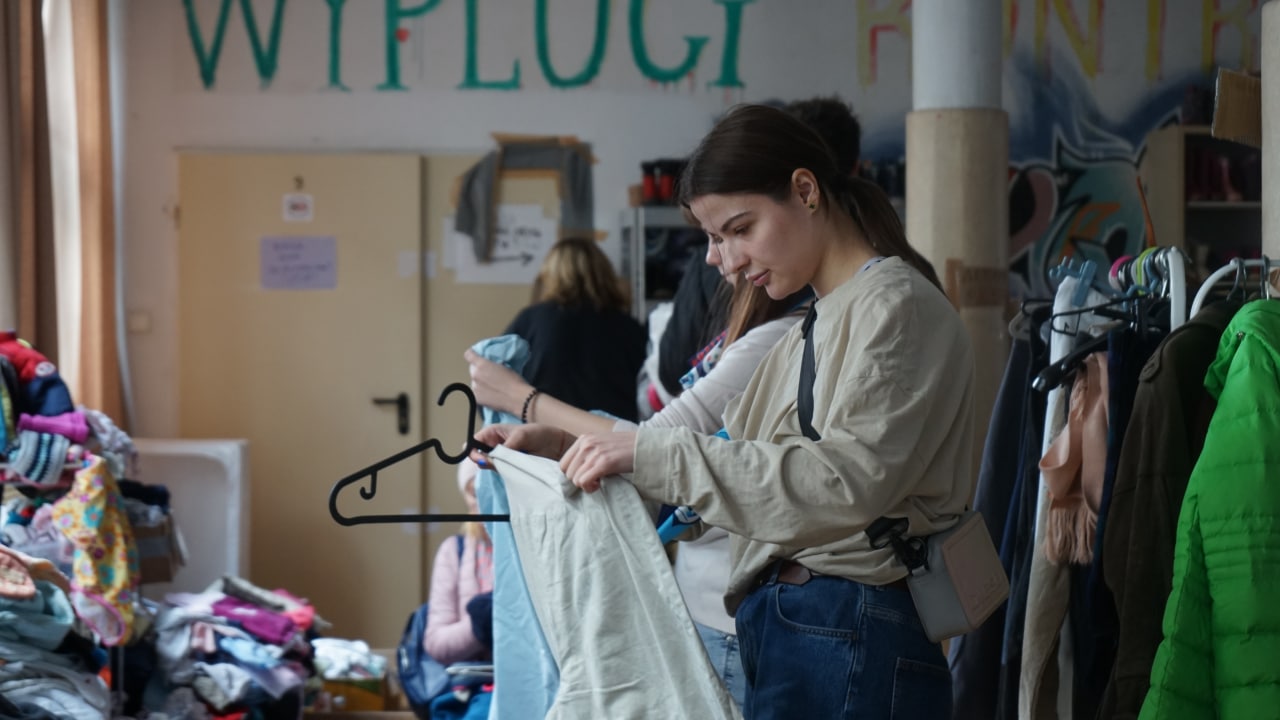
It helps to close the need to help those you can't help - your family, loved ones, and friends. Many of them refuse to leave, many of them are so devoted to the country that they don't want to leave even their half-destroyed homes. Yes, I'm talking about my loved ones now: some refuse to leave.
The sensitivity is gone. For the first three days, you don't know how to stop the crying. And then a big wall grows between you and your emotions. There is no more connection with myself, with my body, I don't notice anything I feel. None of this matters to me, the main thing is to get up early and be in line.
Polina from Zaporizhzhya: The first weeks of the war? There were 18 of us for one compartment. We were lucky: we went without long stops and reached Lviv during the day. And some trains made stops for five hours, and then the trip took 30 hours.
In Lviv, I met a volunteer who advised me to take a bus to the pedestrian border. We drove like a sprat in a jar. Then we walked three kilometers. There was a strong wind.
We spent seven hours crossing the border on the Ukrainian side and another hour and a half on the Polish side. I got two hours of sleep in two days. There were a lot of women, everybody was tired. There was shouting and scandals. Emotionally it was very hard. But there were a lot of volunteers, both Ukrainians and Poles. I'm very grateful to the people who organized it all.
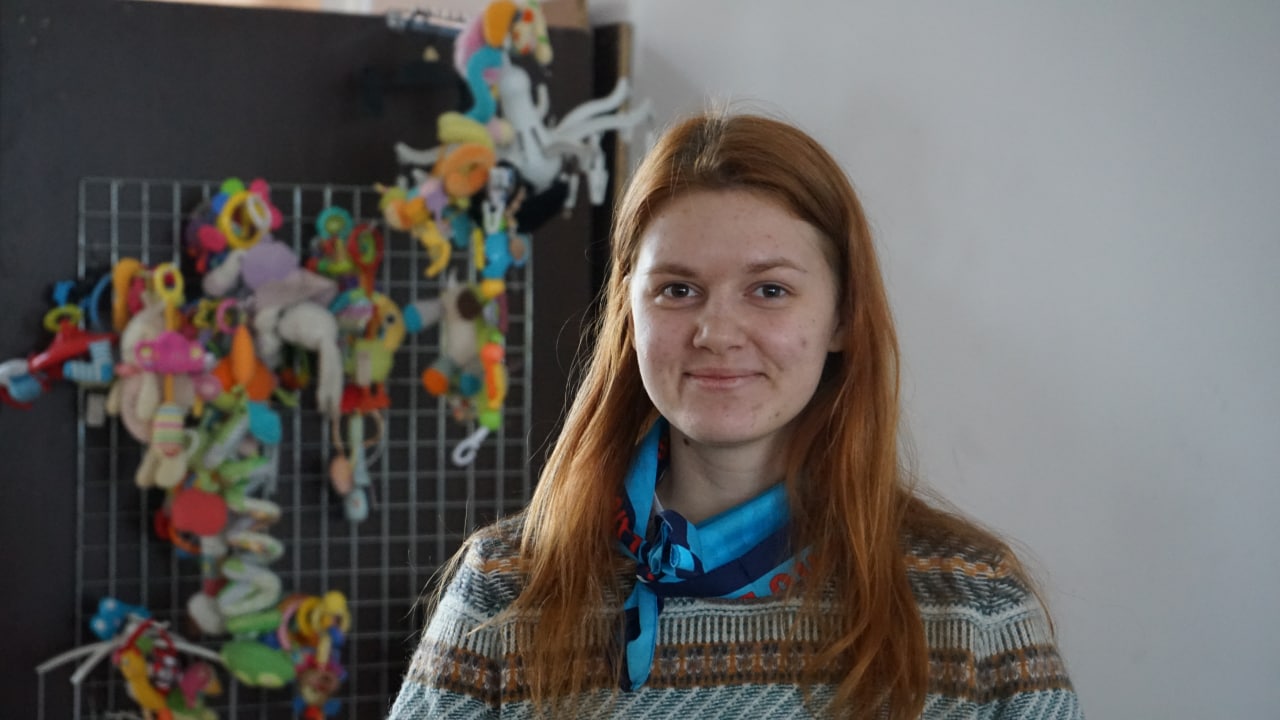
Every day I talk to my mom, I ask how she's doing. If she says "it's quiet today," that's the best I can hear in a day. Sometimes my dad sends me a picture at night. And writes, "Hope to see you again." My parents are in the basement, they're being shelled. Shrapnel has been hitting the yard of the house. It's very hard.
I'm glad that they don't worry about me, they know that I'm safe, and so they don't get too nervous. But it's hard for me: David is in Zaporizhzhia, my parents are in Vasylivka.
David sometimes sends me video messages. In a recent video, he showed me a white haze in the sky right in front of our dorm window. So close. I asked what it was? Turns out a rocket was shot down. So close.
When will it be over, will I go straight home?
Polina from Zaporizhzhya: Home. Only home.
My aunt lives here in Warsaw. But it wasn't easy for me to adapt. I had just settled in Zaporizhzhya. I went to work for the first time. A lot of things happened for the first time. Everything was going smoothly, and I was just beginning to rejoice about how perfectly everything turned out.
And then I was pulled out of my life.
There were a lot of problems in Poland. First, with the language, and second, there was a constant feeling that I was a stranger here. I'm not at home, everyone who is dear to me - my family, my boyfriend - they all stayed in Ukraine.
Polina from Kharkiv: I want to go home more than anything. My boyfriend and I have already decided that as soon as the war is over we will go to live in Kyiv. I want very much to bring home all the knowledge and experience we gained here to raise the economy of Ukraine.
Mikhas: In two days, I have to go back to school. I can't imagine how to do it. I can't imagine how to stop helping while my help is still needed.
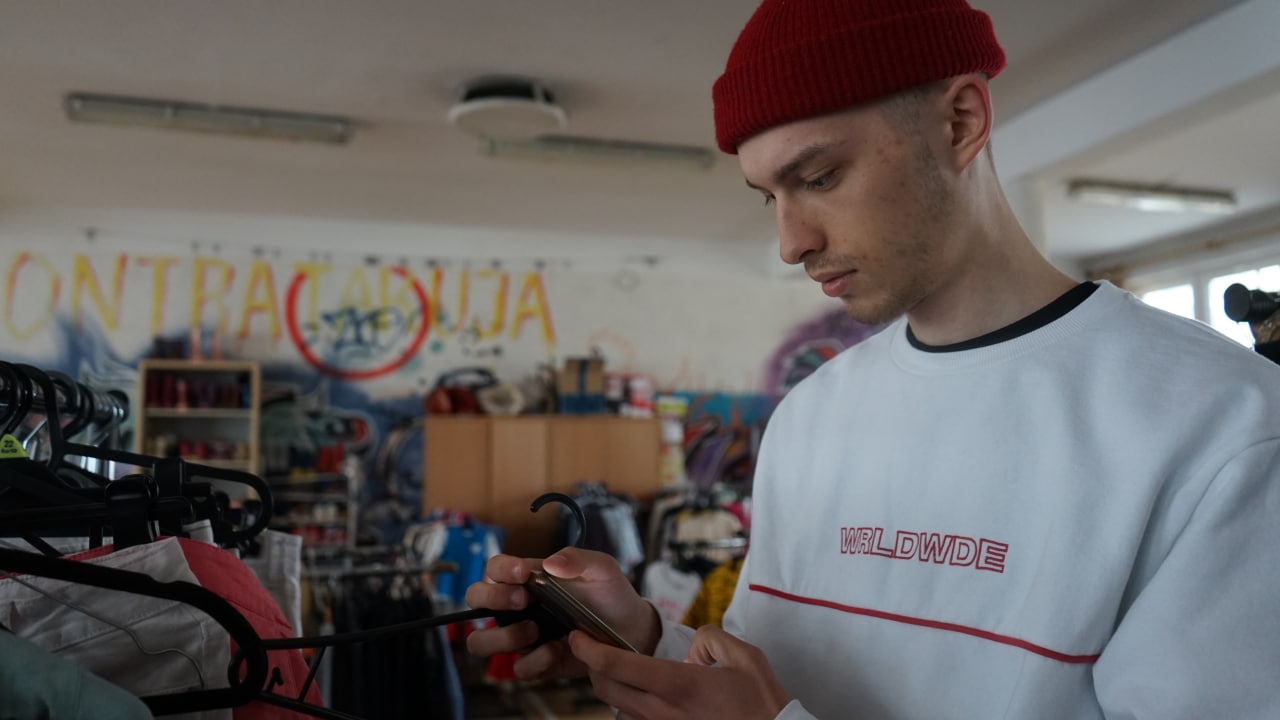
I've learned a lot about myself during this time. I've learned that in critical moments I feel as calm as possible. In normal life, I can be unsure, but in crisis situations - wars or revolutions in Belarus - I have clear thoughts. I am as productive as possible, and if bad thoughts do come, they motivate me.
Is everything going to be okay?
Mikhas: Let me tell you about a situation at the border that is very memorable to me. An elderly woman and a man were traveling across the border. The man had a stroke on the way. They needed to get to Italy, but they couldn't make the connection. The woman was worried that after the stroke, her husband simply would not survive such a "complicated" trip.
There was no way we could find a suitable transport, the connection to Italy was not very good. And then we met a girl who came here from London. She collected three thousand British pounds on crowdfunding for such cases. And paid for the ticket for this elderly couple to Bologna.
The grandmother couldn't believe such a thing was possible. Such stories are very motivating. Everything in our world is tied up in material things. And when the system breaks down, when these rules stop working, people are surprised. And I'm surprised, too. All this helps keep faith in humanity: people are not selfish, they think not about money, but about each other.
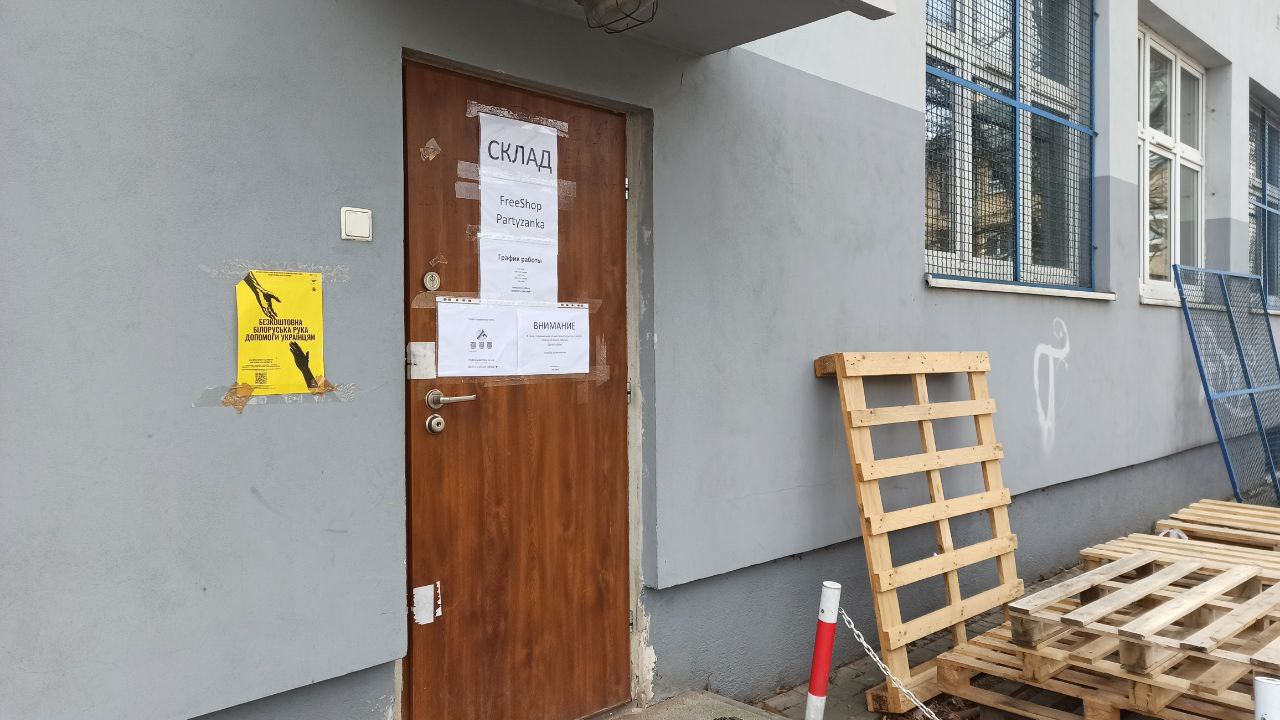
Polina from Zaporizhzhya: Inside me, there is a belief that soon all this will be over, that everything will be normal.
I am against racism, against discriminating against the whole nation. I once tried to find people responsible for it. And all this blame I was throwing at people who live in Russia. But now I've decided that I'm going to watch myself and my emotions. It will all be dealt with without my anger.
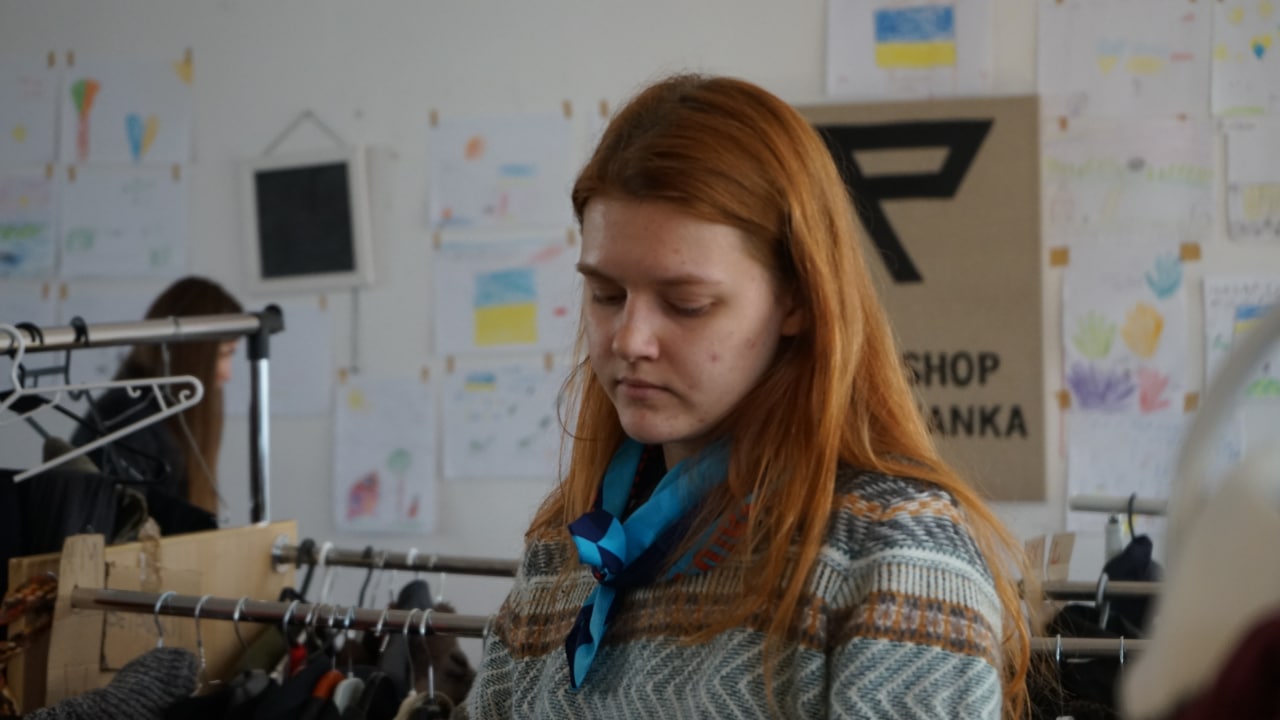
There's such a beautiful song by John Lennon - Imagine. And in it are the beautiful words: Imagine all the people livin' life in peace. "You may say I'm a dreamer, but I'm not the only one". So I have the same hope inside: maybe people will realize that war never means going up, it's only down.
